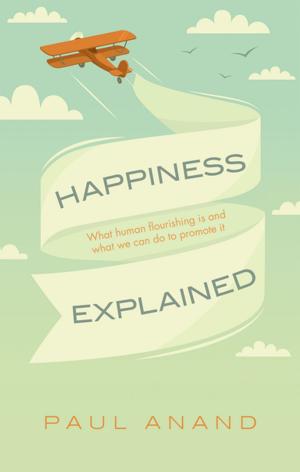The Oxford Handbook of Africa and Economics
Volume 1: Context and Concepts
Business & Finance, Economics, Economic Development, Economic History| Author: | ISBN: | 9780191510762 | |
| Publisher: | OUP Oxford | Publication: | July 2, 2015 |
| Imprint: | OUP Oxford | Language: | English |
| Author: | |
| ISBN: | 9780191510762 |
| Publisher: | OUP Oxford |
| Publication: | July 2, 2015 |
| Imprint: | OUP Oxford |
| Language: | English |
For a long time, economic research on Africa was not seen as a profitable venture intellectually or professionally-few researchers in top-ranked institutions around the world chose to become experts in the field. This was understandable: the reputation of Africa-centered economic research was not enhanced by the well-known limitations of economic data across the continent. Moreover, development economics itself was not always fashionable, and the broader discipline of economics has had its ups and downs, and has been undergoing a major identity crisis because it failed to predict the Great Recession. Times have changed: many leading researchers-including a few Nobel laureates-have taken the subject of Africa and economics seriously enough to devote their expertise and creativity to it. They have been amply rewarded: the richness, complexities, and subtleties of African societies, civilizations, rationalities, and ways of living, have helped renew the humanities and the social sciences-and economics in particular-to the point that the continent has become the next major intellectual frontier to researchers from around the world. In collecting some of the most authoritative statements about the science of economics and its concepts in the African context, this lhandbook (the first of two volumes) opens up the diverse acuity of commentary on exciting topics, and in the process challenges and stimulates the quest for knowledge. Wide-ranging in its scope, themes, language, and approaches, this volume explores, examines, and assesses economic thinking on Africa, and Africa's contribution to the discipline. The editors bring a set of powerful resources to this endeavor, most notably a team of internationally-renowned economists whose diverse viewpoints are complemented by the perspectives of philosophers, political scientists, and anthropologists.
For a long time, economic research on Africa was not seen as a profitable venture intellectually or professionally-few researchers in top-ranked institutions around the world chose to become experts in the field. This was understandable: the reputation of Africa-centered economic research was not enhanced by the well-known limitations of economic data across the continent. Moreover, development economics itself was not always fashionable, and the broader discipline of economics has had its ups and downs, and has been undergoing a major identity crisis because it failed to predict the Great Recession. Times have changed: many leading researchers-including a few Nobel laureates-have taken the subject of Africa and economics seriously enough to devote their expertise and creativity to it. They have been amply rewarded: the richness, complexities, and subtleties of African societies, civilizations, rationalities, and ways of living, have helped renew the humanities and the social sciences-and economics in particular-to the point that the continent has become the next major intellectual frontier to researchers from around the world. In collecting some of the most authoritative statements about the science of economics and its concepts in the African context, this lhandbook (the first of two volumes) opens up the diverse acuity of commentary on exciting topics, and in the process challenges and stimulates the quest for knowledge. Wide-ranging in its scope, themes, language, and approaches, this volume explores, examines, and assesses economic thinking on Africa, and Africa's contribution to the discipline. The editors bring a set of powerful resources to this endeavor, most notably a team of internationally-renowned economists whose diverse viewpoints are complemented by the perspectives of philosophers, political scientists, and anthropologists.















